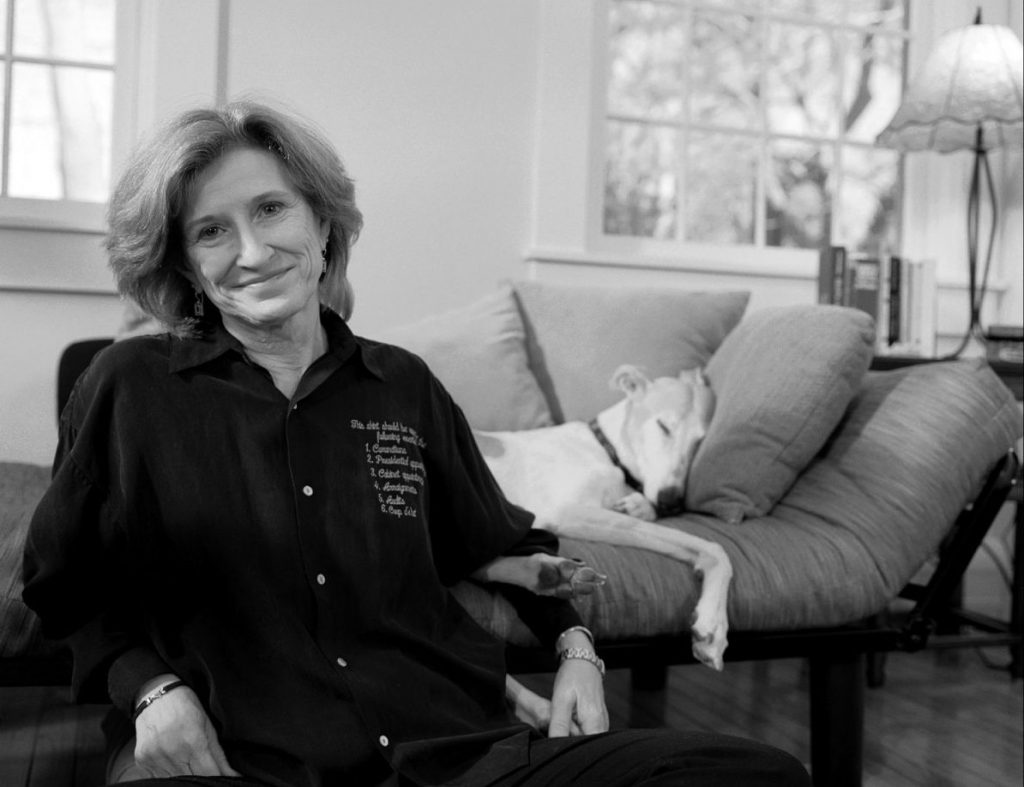In the body’s own words, it cannot live like a vegetable in the country. I am twenty-one and sitting on a bunk in a shotgun house in Mid-City, New Orleans, reading C.D. Wright. After a few conversations on the phone with a professor at the University of New Orleans, I have come here, weeks after graduating college, to help with an oral history project about the experiences of people who lived through Katrina. The storm is two years in the past, though its echo sounds up and down the dry streets. I am here late; it’s likely nobody needs me to be here. I am here because I want my help to feel necessary, because I have been raised to offer help when I don’t know how or what to think. I’m here, I suppose, because I’m afraid college has spoiled me, my corners, my vocabulary, and there’s nothing I fear more than becoming spoiled.
*
It is not clear to me how to get to the university, or anywhere, from here, the street where I’m staying. I never go: instead, I get up every morning drenched in a sweat that a shower cannot banish and get in a pickup with a man who once played football for Ohio State and drinks a Rocket Fuel every morning, a sweet high school dropout with homemade tattoos, and the crew leader, a man who has had his driver’s license suspended in Colorado. I staple insulation without a mask, I cut sheetrock with an X-acto knife, I hand the electrician pieces of wiring. I listen to the radio play terrible R & B.
The only book I remember having with me is C.D. Wright’s new and selected poems, Steal Away. After work is done, because I barely go anywhere–one night the boy with the homemade tattoos and I walk to the French Quarter to hear some music and it feels like going to another country, we wear our work clothes–I read and pretend to write. Pretend because, just as it was for me when I did live in another country, I find it hard to be sure I know my own language: words come out of my mouth sounding wrong. People seem to ask themselves if they’ve understood me. Fights ring stagey and false, like a skit.
*
What I felt was perhaps what comes of really looking at something I’d never seen before. Language, what I’d believed until then to be my superpower, seemed just a cheap copy, a knockoff dress that looks elegant until the seams rip after the first washing. I could not describe what I felt or saw, because. Because I had nothing to say about it. Here I was, becoming unspoiled: one could write toward one’s language instead of through it. (I wouldn’t really learn this for ages).
This looking–at the houses of the Lower Ninth Ward still full of the things they contained when their families left them, at the doors marked with X’s as if to ward off the angel of death–it was just what I thought I wanted, but once you have looked you have changed something, everything. One weekend we walked into an abandoned house–just walked right in, the door open–and found photos of a beautiful man scattered on the floor. His cheeks gleamed beside an apple. He turned toward a window full of light, eyes liquid. How someone had looked at him, I thought.
*
- highway patched with blacktop, service station at the crossroads
- cream soda in the popbox, man sitting on the popbox
- a fully grown man
- filthy toilets, just hold it a little while longer
- shacks ringed with day lilies, then a columned house in shade
- condensation off soybeans
- someone known as Skeeter
- his whole life
- flatbed loaded with striped melons
- Lopez’s white car at JB’s mother’s house
- katydids crepitating in the tall grass
(“Remarks on Color,” C.D. Wright)
Why does Wright’s voice rest in my aural memory of that summer, as if she were giving me a set of instructions? It was partly, but not purely, her Southerness, her ability to set me a guide to an unfamiliar part of my own country. But her Southerness, as many have pointed out, was always made strange in her poems, always blended with a cool modernism and a bewilderingly precise vocabulary. And in that she was another kind of guide, although I couldn’t follow her when I was so young, so full of my own virtue. Looking back at the same poems I read over and over that summer, I see above all her trust that documentary would lead, the recorder switched on, the stenotype clacking. If you only told what was in front of you–highway patched with blacktop, service station at the crossroads–it would lead you, in an hour or ten years, to the elusive: what you had really seen, with what eyes you had seen it.
Photo courtesy of The New Yorker.




